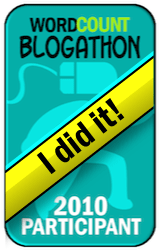What's happening in this week's news about MacKenzie Phillips' tell-all book about her supposed incestuous relationship with her father made me think of a question that came across my in-box last week. On LinkedIn, an editor who belongs to one of the same Groups I joined posed a question. He's writing a piece of fiction on the side and wanted to discuss if others of us on this list were ever challenged when using personal information to tell our stories. He wanted to know how we handle this and whether or not it ever dissuades us from writing or publishing the story at all.
With regards to non-fiction, my take on this is simple: everyone has a story to tell. If you think yours needs to be told, and you can do it with a certain kind of objectivity, then do it.
What I mean by that is this: no one can benefit if you tell your story with the intent to get back at someone. If you're out to hurt another human being by telling your story and publishing it to the world--no matter what that person may have done to you--there is no win. The intent of your story will be as transparent as the windshield on your car.
A prime example, I think, is Dina Matos McGreevey, the ex-wife of former new Jersey Gov. James McGreevey. She wrote her memoir, Silent Partner, to tell the story of what happened to her and her marriage to the governor in 2004, after it turned out that he was gay, and he resigned. Afterward, their divorce made dramatic headlines for many months. Obviously, she was devastated. But I don't think she gave herself enough time to process what had happened to her, because it wasn't long after that when she took all her rage and put it inside that sensational book. From my perspective--and from the sound of her very candid television interviews--her motives were clear. And we haven't heard much from her since.
If, on the other hand, you want to tell your story with the intent to help others who may be experiencing the same thing you did, then go with your gut. Remember, you have those Killer instincts that nag at you from the inside, telling you what you need to do. They are killer, because they hone in on the challenge you're facing at any given minute, and they act as your warning siren. If you muffle that sound (and usually we do this unconsciously) you won't be able to listen.
Besides, it's not like writing a book is a quick and easy process. It's not, and it's shouldn't be--especially if it's a memoir. The life lessons we derive from our experiences take time themselves to be understood. Imagine writing them out when you're still trying to figure out what just happened to you. Well, you're still trying to figure out what just happened to you! You don't yet have the lessons to share when you don't yet know what they are.
My suggestion then is to keep writing in your journals till you hit upon the underlying message. It will appear on those pages, as if someone came knocking on your door to deliver a package. Ding-dong! Oh, there you are! You will get that light-bulb moment--if it's really what you must do. I really believe that, which is why I think Jenny Sanford's book will be a success.
I'm certain, from my own experience, when you get there, you'll know. And I suggest you trust your judgment, write the story from your heart, and then, you'll have your answer as to whether it should be published to the world or not.
So tell me. Have you ever experienced a moment in life where you just knew there was a story behind it? What happened afterward? I can tell you, when this happened to me, I spent the next several years exploring the hidden message, and that became my BIKE.
Saturday, September 26, 2009
Subscribe to:
Post Comments (Atom)












5 comments:
I'm curious to hear your take on the Mackenzie Phillips' story. Do you think hers met the reflection criteria, the trying-to-help others criteria? I admit to not having read the book, and I'm not sure of my own opinions here, esp. b/c the book publishing world seems only too willing to publish a book that will generate a lot of controversy and sell a lot of copies, regardless of the content.
I don't have an opinion on the Phillips' story yet. I think it'll depend on how she promotes it. The thing with the McGreevey story is that the ex-wife seemed like she was looking for revenge. You could tell by the way she answered questions, by what she wrote.
I read an essay of hers, I think it was in More, and I related very much to what she was feeling but felt she could have done herself much more justice if she could have stepped back a bit before doing the tell-all. I very much questioned her motives, only because of how she responded.
I think that's because she was writing that book during the heat of the experience--when emotion is what drives you, not necessarily conscious choice. And probably money, too, which, you can't fault her for at all. You gotta survive, and her whole life was pulled right out from under her. I just think that book might have brought her more negative attention than positive.
As far as the MacKenzie Phillips' story goes, I haven't read the book, either, and I haven't heard her speak about it enough to offer a fair opinion on it.
I think, at this point, I agree that if it helps her heal--if it helps others speak out on this very delicate and misunderstood topic--then it could be a good thing? The ones who need to hear it will. The ones who can't handle the topic will ignore it or complain, thus, help advance a dialogue that may need to take place.
I've heard the complaints that say something like, "Oh, sure! Now she tells this story, now that her father's dead!" But maybe that's exactly why she wrote it now. Maybe were he alive it would have been more problematic for her to tell it--and not just from a legal standpoint. Maybe his death has given her a different perspective, even room to breathe, some sense of freedom that she wasn't aware of until she sat down to write--or work with a ghostwriter, however that process transpired.
The one thing that we can be sure of is that celebrities have the ability to bring attention to whatever it is they want to call attention to. Let's hope her story is being told with healthy motives, or it could do her more harm than good--no matter how much money she earns. So far, she hasn't appeared to be antagonistic about it...
How's that for "no opinion on the topic yet"? LOL
Holy cow, Jennifer! I just wrote another blog post there! Sheesh!
I've been struggling with this myself as I work on a book that is memoir. It is my story to tell, but on the other hand, I want to be careful to consider the feelings of family who are mentioned. It's a fine line to walk. I think it's another situation when the person you write about is dead - as with Mackenzie Phillips.
Brette, are you able to write? Or do you get blocked because of the feelings the writing invokes? I think that's the toughest part. How do you write through that? I think that's what this gentleman on LinkedIn was talking about. I've experienced that before too, having scrapped a number of different projects for that reason. The book I'm writing now, well, it's going to includes sensitive information. I won't use names and feel it's a part of the story I can't deny. Of course, this is many years in the making and much reflection.
Post a Comment